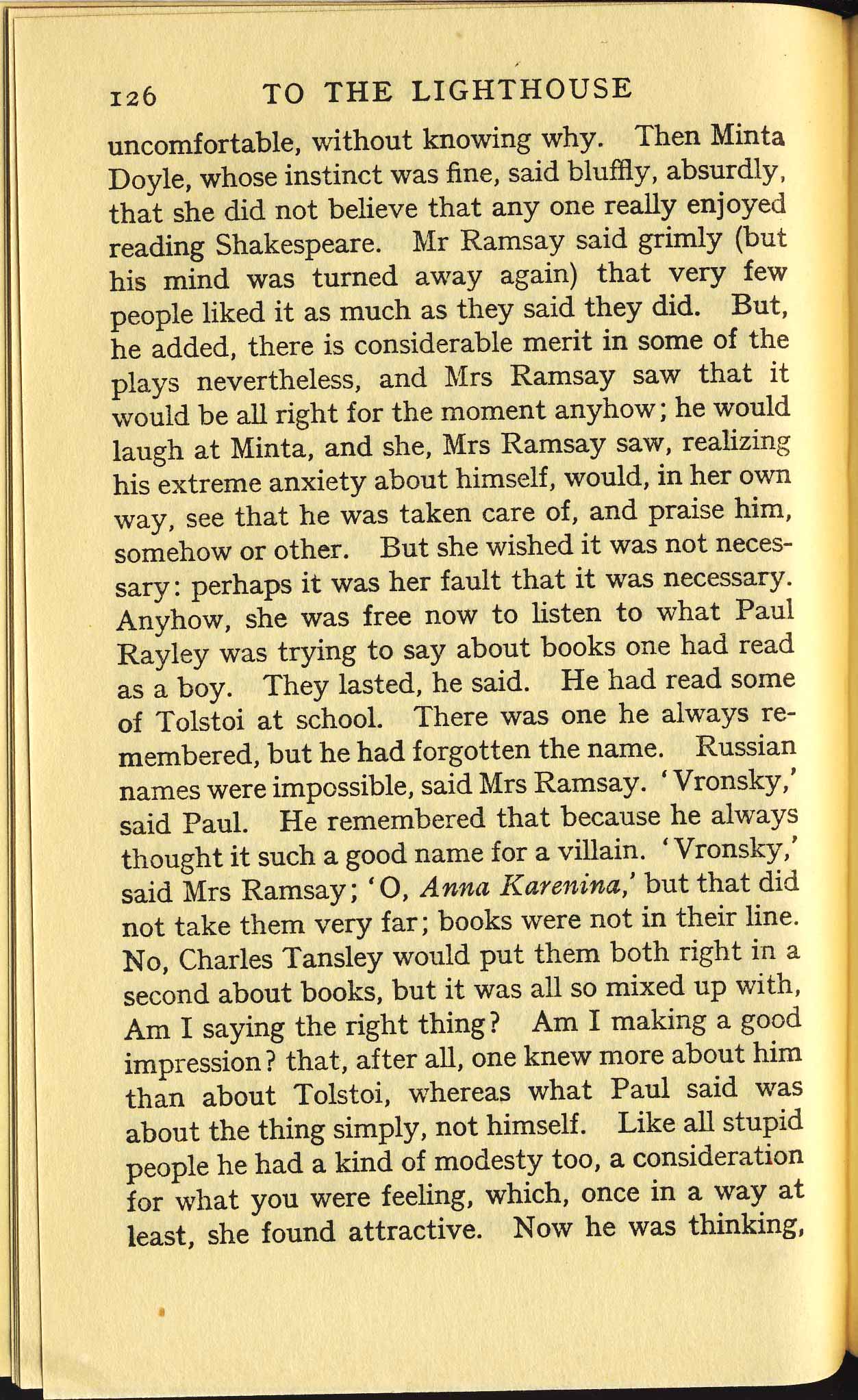
126 TO THE LIGHTHOUSEuncomfortable, without knowing why. Then MintaDoyle, whose instinct was fine, said bluffly, absurdly,that she did not believe that any one really enjoyedreading Shakespeare. Mr Ramsay said grimly (buthis mind was turned away again) that very fewpeople liked it as much as they said they did. But,he added, there is considerable merit in some of theplays nevertheless, and Mrs Ramsay saw that itwould be all right for the moment anyhow; he wouldlaugh at Minta, and she, Mrs Ramsay saw, realizinghis extreme anxiety about himself, would, in her ownway, see that he was taken care of, and praise him,somehow or other. But she wished it was not neces-sary: perhaps it was her fault that it was necessary.Anyhow, she was free now to listen to what PaulRayley was trying to say about books one had readas a boy. They lasted, he said. He had read someof Tolstoi at school. There was one he always re-membered, but he had forgotten the name. Russiannames were impossible, said Mrs Ramsay. ŌĆśVronsky,ŌĆÖsaid Paul. He remembered that because he alwaysthought it such a good name for a villain. ŌĆśVronsky,ŌĆÖsaid Mrs Ramsay; 'O, Anna Karenina,' but that didnot take them very far; books were not in their line.No, Charles Tansley would put them both right in asecond about books, but it was all so mixed up with,Am I saying the right thing? Am I making a goodimpression? that, after all, one knew more about himthan about Tolstoi, whereas what Paul said wasabout the thing simply, not himself. Like all stupidpeople he had a kind of modesty too, a considerationfor what you were feeling, which, once in a way atleast, she found attractive. Now he was thinking,









